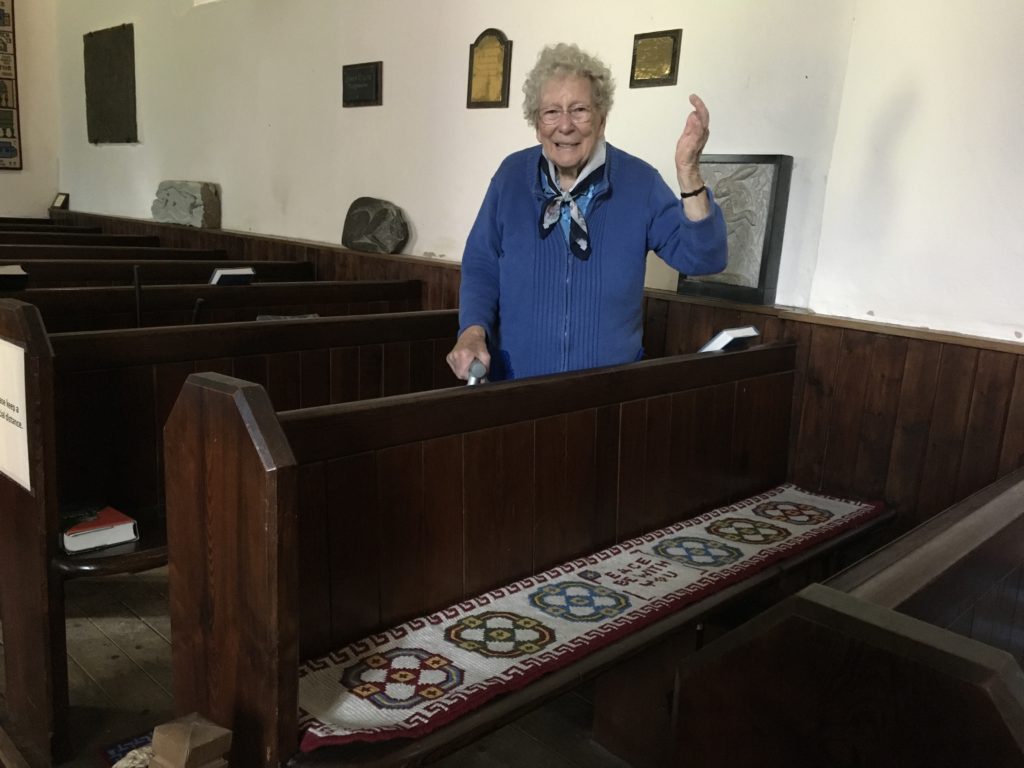Dear all,
“Where two or three are gathered in my name, I am there among them.”
Jesus in St Matthew 18:15-20.
“In 1665 , there was living in this cottage with her two young sons a woman…named Mary Cooper…and she had taken in a lodger called George Viccars, a travelling tailor…” Eyam Plague 1665-1666, pamphlet by John Clifford.
Conflict and its resolution is the emphasis in today’s Gospel reading and Jesus gives guidance on what to do when people can’t agree, procedures that are still relevant today given the amount of conflict and disagreement currently being generated by the opinions and responses to Coronavirus. Despite all this, there’s so much for which to be thankful, too, as we face this with the experience of those gone before us and the drugs, discoveries and treatment they developed in their lifetimes. Think how many lives the discovery of penicillin has saved as the search for a vaccine for Covid-19 goes on.
Events in 1665 in Eyam, the Derbyshire plague village, also had long-term consequences for the handling of disease. It’s thought that the plague may have arrived via infected fleas in cloth sent to the tailor from London and, as the cloth was damp, George Viccars spread it out to dry. He died soon afterwards, and the disease spread quickly, killing at least 260 villagers from 76 different families out of a population of 350. Mary Cooper had given hospitality to more than she realised, as so often do we.
What was significant was the response of the villagers who, at the suggestion of Rector William Mompesson, voluntarily went into quarantine to stop the plague spreading. They were asked to bury their own dead in their back gardens, to worship outside and to have food and goods brought to boundaries where money was left in vinegar to disinfect it. Today, there is much confusion and many grumbles about having to quarantine at short notice but at least we have never had to bury our own dead – the villagers united in their response and the infection was contained.
However, this was not without its cost and the Rector’s wife was one of those who died. As the current vicar wrote of his predecessor: “When you read Mompesson’s letters….in one he writes ‘I am a dying man’. He was scared but he did it all the same. I suspect fear stalked them every day of their lives at the time.” Mompesson, who was only 28 at the time, survived but when he moved afterwards was at first made to live in a hut in Rufford Park for fear of the plague being brought with him. Where two or three are gathered…..
The shrine church here bears testimony to this too. A few people gathering though Melangell’s arrival, her encounter with the prince and the small community that then began here eventually grew into the church of today where the work and legacy of so many down the years bears silent witness to the faith underpinning it. There may have been conflict at times, too, but its restoration must have required vision, will and co-operation, which are much needed today in our generation.
I was reminded of this when Enid Shaw and her daughter recently arrived. Enid is now 94 and was much involved with bringing groups to the church as well as stitching one of the pew runners which continue to provide colour, warmth and comfort today. She was delighted to find her runner and both are shown in the photo beneath. Talking with her enabled me to understand more about the origins of what is here today and the importance of each generation in shaping what we sometimes take for granted.

As we think of the words of Jesus, consider the actions of the Eyam villagers, ponder the pandemic or realise what has been entrusted to us, what conflict needs to be reconciled in our lives? What will successive generations say about our response to the challenges before us and what we entrust to them?
With my prayers,
Christine
Diocesan prayer for the week
Sovereign God, our world is fractured and divided by differences of belief, opinion, custom, and allegiance. Open our hearts to be reconciled to one another in love; may we not, for the sake of our own ease, be reconciled to what wrong or uncharitable but work in your strength for the good of all. For the sake of Jesus, whose costly work of reconciliation brings us close to you, Amen.
Canon Carol Wardman

